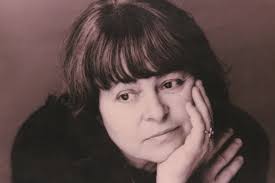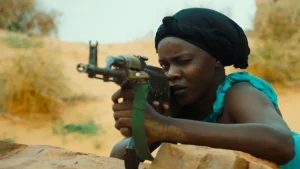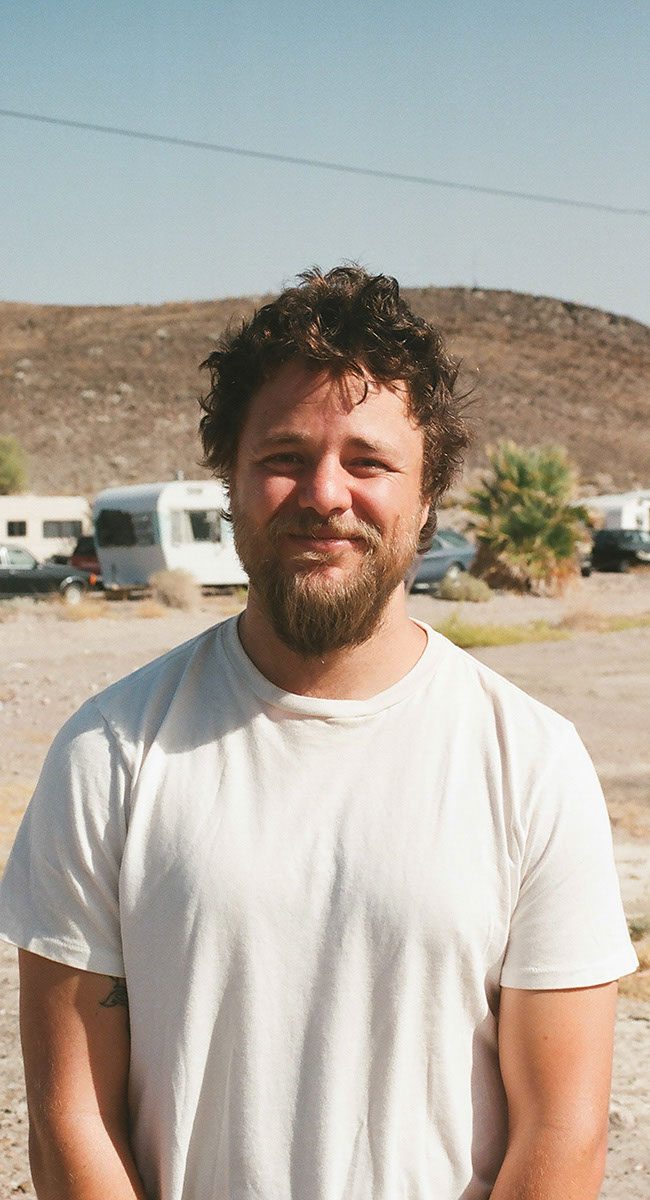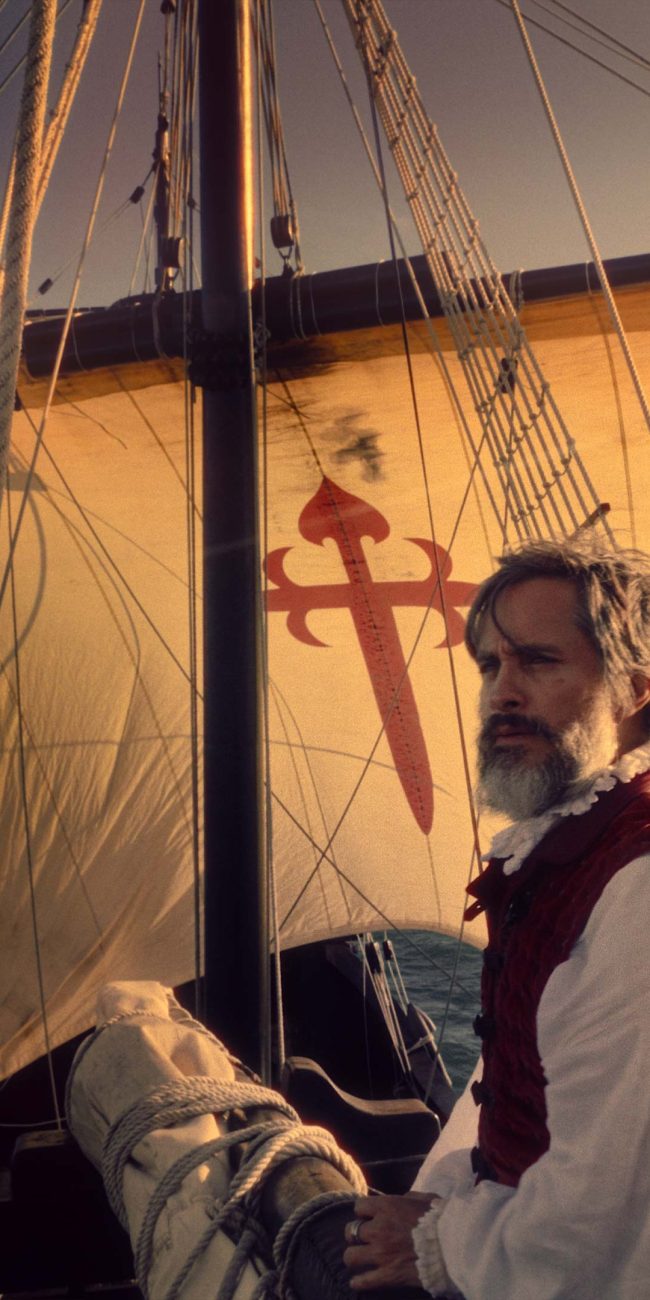A Conversation with Isa Willinger (NO MERCY)

“Do women make harsher films?”
This is the question driving filmmaker Isa Willinger’s latest documentary, No Mercy. The film is an electrifying cinematic essay investigating women’s roles on and behind the camera. Willinger brings in the testimonies of some of the most daring female and nonbinary filmmakers from around the world to find an answer.
Willinger first pondered this question years ago, when Russian filmmaker-provocateur Kira Muratova declared this thesis to her in an interview. “I used to think it was silly to believe that women made different kinds of films. Then I went to a women’s film festival in France, and there I saw lots of harsh, brutal films. None of them were ladylike by any means. I understood […] that, in reality, women make the harsher films.”
Willinger laughed the statement off, but it took root in her mind, growing into No Mercy.
Whether the film’s subjects arrive at a ‘yes’ or a ‘no,’ or regardless of their definitions of “harshness,” they generally come to the conclusion, why shouldn’t they?
For bodies whose skin stretches to make room for life, whose blood spills in a monthly ritual; for bodies traded for unspeakable acts or exploited for their supposed “use,” harshness is not a choice or technique, but an everyday reality.
In the following conversation with Willinger, edited for length and clarity, we discussed what conclusions she drew from making No Mercy.
Hammer to Nail: The conversation of gender disparities in the film industry – on and off camera – has been an ongoing conversation. Why did you decide to make this documentary now?
Isa Willinger: I started working on this film five years ago; it’s been a long journey. I had seen that big 14-hour thing, “Women Make Film” by Mark Cousins. It features excerpts from films by women, but it was just excerpts. There was no interviews with the women themselves, with the makers, with the directors. And I was like, they’re totally missing from the conversation. I was thinking that there aren’t really movies about and with women directors talking about why they work the way they work and so on. I felt it would be great to make such a documentary. And then I was looking for an angle and I remembered the interview that I did with Kira Muratova a while back, and that she had said something very intriguing. But also, I think it was a time when the me too movement was very present so it was very important for me to shine a light on women in film.
HtN: No Mercy presents an impressive and diverse cast of female and nonbinary filmmakers: Celine Sciamma, Alice Diop, Joey Soloway, and Mouly Surya, just to name a few. Were there any additional filmmakers you wanted to include but could not for one reason or another?
I.W.: I mean, of course, the first woman filmmaker that came to my mind when I was thinking about harshness in women’s cinemas was Kathryn Bigelow because, you know, she’s been doing action films for decades now and she’s a huge name in that genre. Of course I wanted to get her, but it wasn’t possible in the end, and that was a pity, but on the other hand, I got other really wonderful filmmakers that I was also really hoping I could get and so all in all, I’m really happy with the cast I got.
HtN: While audiences hear these filmmakers’ perspectives, I’d like to turn the camera on you, so to speak, and ask what you initially thought of Muratova’s thesis, and whether this changed after working on this film?

Filmmaker Kira Muratova
I.W.: When I interviewed Kira Muratova, I was surprised and it seemed, to me, to be an outlandish thought, because Muratova likes to provoke. I had so many other topics I was discussing with her, like her film language, and her visuality, so I didn’t really give it a deeper, further thought. But it did stick with me, I guess. When I went back to the interview and reread it when I started this film, I wasn’t sure if she was right. For me, it was like a 50-50 chance; maybe she’s right, maybe she’s not right. But it seemed worth exploring. And in film and in general, I like things that are complex and not so black and white, so I was ready to give a complex answer to that question. I started with the idea of harshness as violence and violent images and so on, but then pretty soon, it became clear that [harshness] can be many different things. So I would say yes, she [Muratova] was right, but harshness not as violence necessarily, but more like an honesty, a bluntness of the certain experiences you have as you’re going through this world as a girl or a woman or a non binary person these days.
HtN: Again, No Mercy boasts a vast cast of filmmakers from across the world. From your interviews conducted with these filmmakers, what did you notice about the differences in the varying global film industries?
I.W.: I think it’s actually much harder in Hollywood than it is in Europe. In Europe, a lot of films are, pretty much for the most part, funded by public money. There are film funds and juries that are usually artistically minded and so on, so I think it’s easier to change the system, whereas in Hollywood, things are directed by money and so it still seems that one of the easiest recipes to make money with a film is to put naked women in the film. So it’s very, very hard to get rid of sexism in such a money-driven system that is Hollywood.
That was my thought when we were shooting with the American directors for No Mercy, that their frustration and bitterness with Hollywood is much bigger than the outlook of the European directors and I can see why that would be. On the other hand, I do also have to say that the American capitalist movie industry, for all its sexism, and its sometimes reluctance to change, all of a sudden, you have a movie like Barbie in that system, right? So it does surprise you, that that system that is so capitalistic and reluctant to change, all of a sudden, something completely revolutionary can show up, so I wouldn’t be so pessimistic. I also have hope for the women in the younger generations of directors [who are] really pushing hard and making things possible, making change possible. So I think I am optimistic, but it just has to get better.
HtN: About halfway through the film, Jackie Buet notes how Chantal Akerman’s Jeanne Dielman, 23 quai du Commerce, 1080 Bruxelles was criticized for various reasons, suggesting misogyny, but was ultimately voted best film of the century by Sight and Sound. In this context, it could be interpreted that the film criticism space is perhaps less gendered than the filmmaking space. What are your observations about criticism of female-made films?

A still used in NO MERCY
I.W.: It’s connected to what I said about the bar being higher for women and the appreciation not being handed out so easily. Like, one, one critic from a newspaper he gave me his feedback and it was such a “mansplainatory” way of looking at No Mercy, he was telling me all the other directors and films that the film was actually missing, so not seeing what was there and appreciating what was there, but just like giving me his huge knowledge of film history the way he would have done it.
HtN: Female characters in film have historically been confined to a number of different, though equally sexist personas: the damsel in distress, the ditz, the temptress, etc. Where do you see the state of female characters today?
I.W.: On the one hand, there’s definitely now a diversification happening, so we see more ambivalent characters, especially in films by women, we see more interesting, more complex female characters. Though, of course, all the other stereotypes, they keep on surviving, so it’s happening at the same time. We’re seeing more films by women directors, which is great and also in the competitions of film festivals, I think it’s now about like, 30% films by women directors, 70% by male directors in the past two years, so it’s, it’s definitely getting better, but it’s not ideal yet, for sure.
HtN: What about on the other side of the camera, how as a female filmmaker, have you seen opportunities and respect for female filmmakers evolve, especially in the independent film space?
I.W.: I mean, back then it was worse, I would say, definitely worse for women, and it’s gotten better. This year’s competition at Cannes Film Festival, there was a film by Mascha Schilinski, she’s a very young German director, and it was an extremely unconventional, super interesting film about three generations of women. And, you know, she had a female script writer also, and it was very filmed in a very unusual way, very non mainstream, and it got raving reviews. And that, for me, was proof that something has been changing for the better, that a relatively unknown young woman can get a film out there to Cannes Film Festival, get raving reviews for her radicalness and so on. Still, the bar is higher for women, they have to prove themselves so much more, I would say, especially when they’re doing something unconventional, I think it’s easier to be recognized as a guy, whereas as a woman, it’s still a little bit, like, is this genius or is this just weird. Some things have improved, and others we still have to fight for. It’s an ongoing struggle.
– Kaitlyn Hardy











